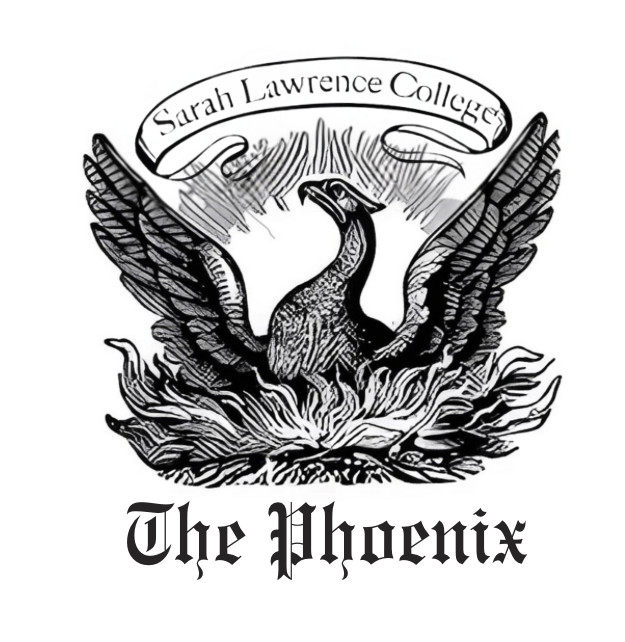Students Improve Health of School Through Peer Health Education
Photos and bios of 2016-2017 Peer Health Educators. Photo Credit: andrea Cantor '17
Every fall for the past three years, a new group of Sarah Lawrence College students have gone through a nine-week training program to become Peer Health Educators. In the spring, after becoming certified, these students take on health related projects to improve the wellbeing of the community. Though the certification comes from an outside organization, BACCHUS, the Peer Health Educator program is unique to Sarah Lawrence.
Gabriella Edwards (’20) is in the middle of this training program. Edwards studies pre-health at Sarah Lawrence, and thought the Peer Health Educator Program could help her with her career goals. She said she has already found the program valuable and it has taught her new ways to support and connect with her peers. The program goes beyond what health and wellness could do previously, Edwards added, and allows students to be involved in a new way.
Anica Mulzac, a psychologist, and Sheryl Last, a nurse, who both work in the Health and Wellness Center, currently facilitate the program. Mulzac said that they took on the project, “because there is only so much that we can do as staff. Students will only tell us so much, and we only have so much access to them. We can’t be in the dorm with them and find out what is going on. Students can help us be in tuned and be more informed about the needs and issues on campus.”
Last year, the Peer Health Educators addressed the issue of the arrangement of food, water, and alcohol at formal. The Peer Health Educators (PHEs) worked with student life to strategically re-design the tent so that students would be more likely to eat before having a drink, and have water in-between drinks at the dance. This student initiative succeeded, and no students went to the hospital with alcohol poisoning at the event. Last reflected, “The PHEs identified a need, they implemented a plan, and there was a positive outcome. That is really our goal.”
The Peer Health Educators also worked on a project last year that promoted night safety, and helped organize the different health fairs that health and wellness puts on every few months.
Last said that these programs have been successful because, “peers are more likely to listen to their peers then they are to listen to us. We might be giving them the exact same information but coming from peers, it can be received better.” Last feels that getting students involved in health initiatives on campus has definitely had a positive impact.
Kendal Flowerdew (’19) is also currently in the training program. “We started learning about how to be effective communicators, and how to help students make their own decisions about healthy living as opposed to forcing these ideas on them,” she explained. Flowerdew feels that this program can effectively help improve the Sarah Lawrence community.
This semester, the Peer Health Educators already have several projects underway. In addition to organizing an upcoming health fair on February 14, they have been conducting a survey on student satisfaction of AVI with the hopes of making improvements to food services on campus.
The Peer Health Educators are also creating a Sarah Lawrence spirit week. Mulzac said that spirit week should make students, “feel more connected to each other, feel more pride, and feel more connected to the school.” The Peer Health Educators want to work to increase positivity and community at Sarah Lawrence, and feel that initiatives such as spirit week could help to accomplish that.
The Peer Health Educators set up an email, phe@sarahlawrence.edu, for students to get in contact with their peers in the program. Last said that they created the email for students who need support. She feels that this resource is great for students who want to be connected with one of the PHEs to have a one-on-one mentoring session. The Peer Health Educators are not trained to be counselors but are certified to have listening, problem solving, brainstorming, and conflict resolution skills. The PHEs can also help connect other students to additional supports available on campus. Last said that ultimately, she wanted to emphasize peer-to-peer support within the program.
Lesedi Ntsele (’17) was involved in the Peer Health Educator Program last year. Ntsele said that the program helped her give better peer support, “I feel like I have these tools to still be a friend to people but also I have a way to help them find the resources that they need or to act as a resource for them.” She said that often times in college, it is hard to know where to get help for yourself, and it can be equally difficult to support your friends. She said that the Peer Health Educator Program is helping with this issue.
Last said that the overall goal of the program is to improve student life on campus, and improve retention. She explained, “If needs are being met, and students are happier, they are more likely to stay and continue their education here and succeed.”
Nora Tomas '19

